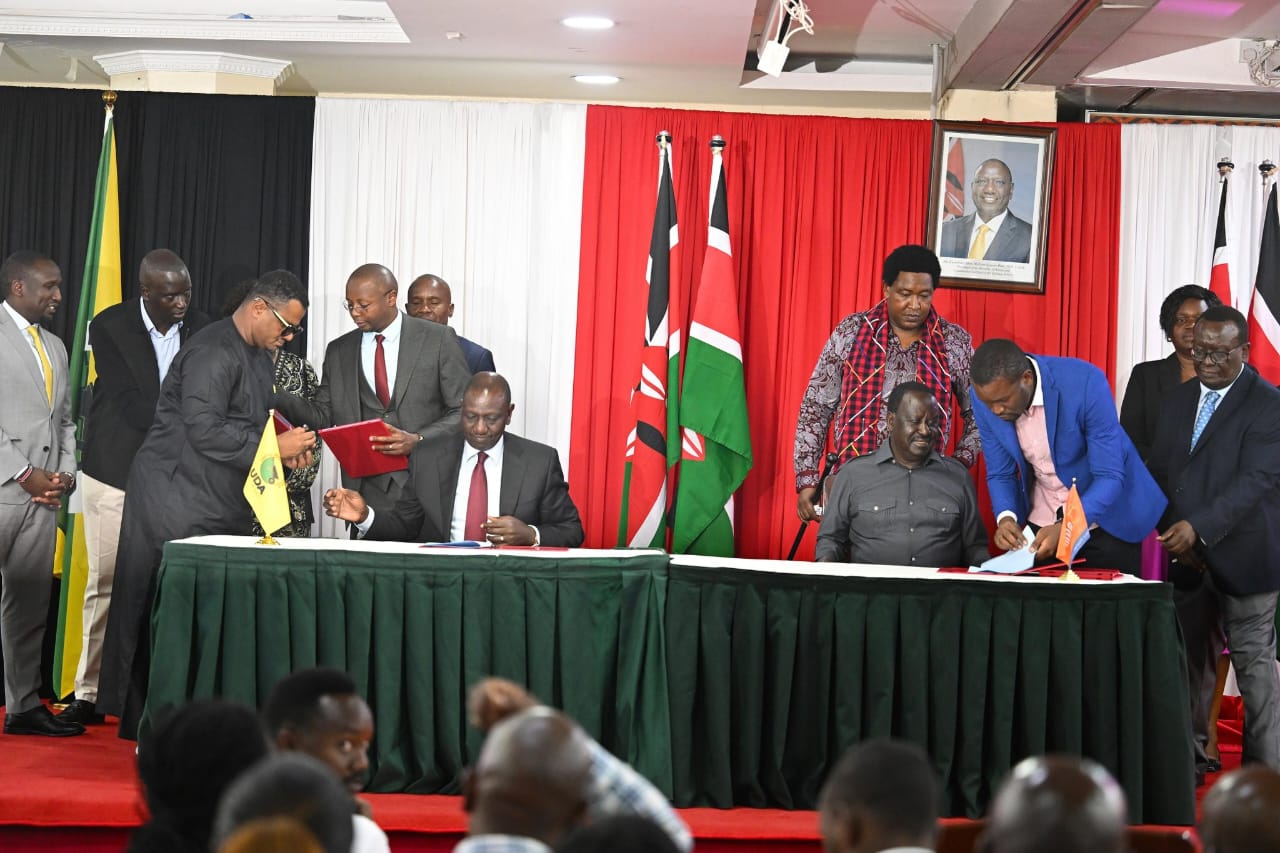
Inside Ruto-Raila cooperation agreement
Barely three weeks after his unsuccessful bid for the African Union Commission (AUC) chairmanship, ODM party leader Raila Odinga is now back to national politics, this time unveiling an unexpected alliance with President William Ruto.
The two leaders, once fierce political adversaries, signed a cooperation agreement on Friday at the KICC in a ceremony witnessed by top leaders from both the United Democratic Alliance (UDA) and the Orange Democratic Movement (ODM).
According to the agreement, formalised in a memorandum, the two leaders seek to address Kenya’s socio-economic and governance challenges through structured dialogue and bipartisan engagement.
President Ruto, in his remarks stressed that the deal was not centred on sharing political positions or future elections but on addressing issues affecting Kenyans.
Raila, on the other hand, clarified that the agreement does not amount to a political coalition between the two parties but serves as a framework for national dialogue.
“While this memorandum does not define the formation of a political coalition between the respective political parties, it’s successful implementation will inform the basis of steps towards the establishment of a progressive and stable country,” the MoU between UDA and ODM reads.
Central to the agreement is the full implementation of the National Dialogue Committee (NADCO) report which prioritizes lowering the cost of living, addressing youth unemployment, and ensuring gender inclusivity in governance.
The deal also seeks to reinforce devolution by securing adequate funding for counties and guaranteeing timely disbursement of resources.
Ruto and Odinga will also work on strategies to drive investment in high-potential sectors such as agriculture, mining, and ICT to create employment opportunities for young people.
The agreement further calls for an audit of Kenya’s national debt and the strengthening of institutions tasked with fighting corruption.
The leaders also pledged to uphold civil liberties, including the right to peaceful assembly, and called for amnesty for individuals prosecuted for participating in past demonstrations.
Key issues outlined in the MoU;
- Full implementation of the National Dialogue Committee (NADCO) report
- Inclusivity in all spheres of public life
- Protecting and strengthening devolution
- Promoting and protecting the livelihoods of young people
- Leadership and integrity
- Right to peaceful assembly and protests under Article 37 and compensation of all pending claims of abuse and derogation of this right
- The National Debt
- The fight against Corruption
- Stopping wastage of public resources and promoting government efficiency
- Protecting and promoting sovereignty of the people, the Rule of Law and Constitutionalism
